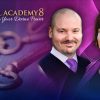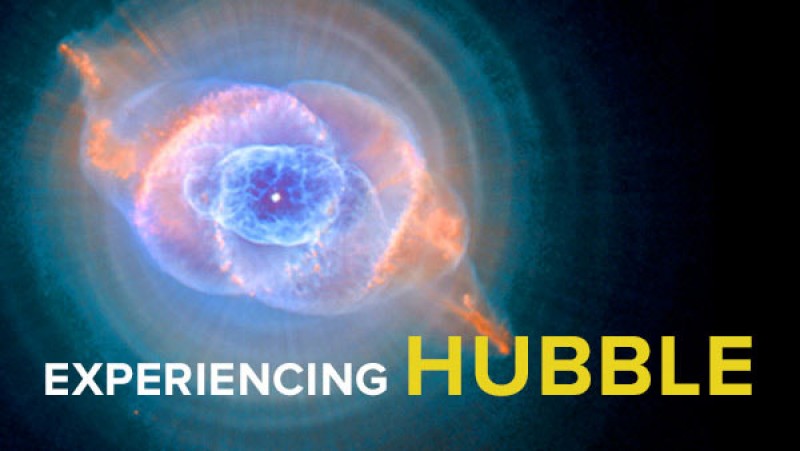Experiencing Hubble – Understanding the Greatest Images of the Universe
$196.00 Original price was: $196.00.$39.90Current price is: $39.90.
Your guide is Professor David M. Meyer of Northwestern University, an award-winning educator and a frequent user of the Hubble Space Telescope File size: 3.96 GB
Experiencing Hubble – Understanding the Greatest Images of the Universe
A few hundred miles above Earth, there is a remarkable telescope with a crystal-clear view across the universe. For two decades, the Hubble Space Telescope has been amassing discoveries that rival those of history’s greatest scientists and explorers, making it the most important and productive scientific instrument ever built.
Hide Full Description
Although it never ventures beyond low-Earth orbit, Hubble’s location high above the blurring effects of the atmosphere gives it an unrivaled vantage point for investigating phenomena throughout the cosmos:
Comet crash: In 1994 Hubble witnessed a rare solar system cataclysm—a series of comet strikes on Jupiter, which produced Earth-sized plumes of vaporized debris in the giant planet’s atmosphere.
Star birth: Thanks to its incomparable resolution, Hubble has brought previously hidden stellar processes to light. Perhaps its most famous image shows a dramatic hotbed of new star creation in the Eagle Nebula.
Warped space: Exploiting Einstein’s general theory of relativity, Hubble has used the space-warping properties of giant conglomerations of matter, such as galaxy clusters, to detect dark matter and far distant galaxies.
Deep time: In 2003–2004 Hubble trained its instruments on a tiny, seemingly blank spot of sky for a total of 268 hours, recording thousands of distant galaxies in the deepest optical view ever made of the early universe.
These and more than half-a-million other images reveal never-before-seen features of planets, stars, and galaxies with breathtaking clarity that sets Hubble apart from all other telescopes. Now is a good time to assess Hubble’s accomplishments, as it enters the third decade of its operational life, by studying a carefully chosen sample of its landmark images in a visual feast that includes many of the greatest discoveries in astronomy during the 1990s and 2000s.
Experiencing Hubble: Understanding the Greatest Images of the Universe is just such an overview, drawing on one noted astronomer’s Top 10 list, including the four above, to take you on a dazzling voyage of discovery that delights the eye, feeds the imagination, and unlocks new secrets of the universe in 12 spectacularly illustrated half-hour lectures.
Get immediately download Experiencing Hubble – Understanding the Greatest Images of the Universe
Your guide is Professor David M. Meyer of Northwestern University, an award-winning educator and a frequent user of the Hubble Space Telescope in his research on interstellar and extragalactic gas clouds. Professor Meyer has made Hubble images the hallmark of his popular astronomy lectures to undergraduates, amateur astronomers, and the general public, which teach fundamental concepts and recent breakthroughs through the super-sharp eye of Hubble.
For those new to astronomy, Experiencing Hubble reviews all the background needed for a well-informed tour of the otherworldly realm investigated by Hubble. And for experienced stargazers, Dr. Meyer gives a fascinating insider’s perspective on the work of the superstar of telescopes.
Ten Fascinating Scientific Stories
For this course, Dr. Meyer selected 10 iconic Hubble images based on their visual beauty, scientific impact, and breadth of subject matter. Each image is the focus of its own lecture, which uses the iconic picture as a jumping-off point for exploring different aspects of the cosmos that Hubble has revealed in startling new detail. As you venture from the realm of the solar system to the farthest reaches of the universe, you get a wide-ranging education in such subjects as
comets and asteroids,
the life cycles of stars,
the evolution of galaxies,
dark matter, and
the evidence for the big bang.
In addition to the four images cited above, Professor Meyer’s Top 10 list also shows you these:
Closely packed stars: Countless stars sparkle like multicolored gems toward the core of the Milky Way galaxy.
Dying star: An intricate pattern of debris expands outward from a sun-like star in its death throes.
Supernova relic: The filamentary Crab Nebula shows the remains of a titanic supernova explosion seen on Earth in the year 1054.
Stunning edge-on galaxy: Looking like a distant island, dark dust lanes and an eerie, central glow mark the Sombrero galaxy.
Cosmic distance ladder: Extreme depth-of-field in a view of galaxies near and far illustrates the cosmic distance ladder.
Colliding galaxies: A pair of merging galaxies reveals the likely future of our own Milky Way and the nearby Andromeda galaxy.
Professor Meyer’s Top 10 list is only the beginning, since Experiencing Hubble includes hundreds of other astronomical photos, historical images, diagrams, and animations that take you deep into the fascinating scientific stories behind each of his iconic pictures. Dr. Meyer also talks about his own experiences on the world’s biggest telescopes, including Hubble, giving a glimpse of the wonder that inspires all astronomers and their ongoing excitement at the flood of data from Hubble. With this remarkable instrument, it is as if a picture window on the cosmos has been wiped clean for the first time, presenting a glorious view to all eternity.
Be the first to review “Experiencing Hubble – Understanding the Greatest Images of the Universe” Cancel reply
Related products
Other Courses
Other Courses
Other Courses
Other Courses













Reviews
There are no reviews yet.